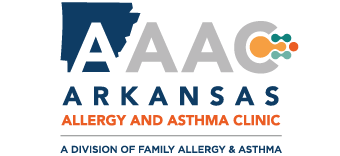How to Identify, Avoid and Treat Environmental Asthma Triggers

Living with asthma can feel like a challenge on its own without having to worry about your environment worsening your symptoms. However, for many asthma sufferers, this is an everyday experience. By recognizing these triggers and learning how to manage them, you can take control of your asthma and improve your quality of life.
What are environmental asthma triggers?
Environmental triggers are substances or conditions in your surroundings that can provoke asthma symptoms. These triggers can be found indoors and outdoors and vary from person to person. Identifying your specific triggers is crucial for controlling asthma and minimizing flare-ups.
Common environmental asthma triggers can include…
- Allergens: These include pollen from trees, grass and weeds, mold spores, dust mites and pet dander. These tiny particles can easily enter your airways and cause irritation.
- Air Pollution: Poor air quality from smog and vehicle exhaust can worsen asthma symptoms. High pollution levels can be particularly problematic for those with asthma.
- Weather Conditions: Changes in weather, such as cold air, high humidity and sudden temperature shifts, can trigger asthma attacks.
- Strong Odors and Fumes: Certain scents, including perfumes, cleaning products and smoke from tobacco or wood-burning stoves, can provoke asthma symptoms.
- Indoor Irritants: Many asthma triggers, such as mold, dust and pet dander, can be found even in our homes.
How do environmental triggers affect asthma symptoms?
When exposed to environmental triggers, your airways can become inflamed, leading to coughing, wheezing, shortness of breath and chest tightness.
The severity of these symptoms can vary based on your sensitivity and the amount of exposure you have to triggers.
Recognizing how these factors affect your body is the first step in managing your asthma effectively. After this, avoidance and treatment are crucial to managing symptoms.
“How do I avoid asthma triggers?”
Taking proactive steps to avoid environmental triggers can significantly improve asthma management. Your allergy and asthma specialist may recommend these strategies when building your asthma action plan:
- Clean your home regularly. Routine cleaning helps reduce dust mites and pet dander. To minimize allergens, consider using hypoallergenic bedding and washing your linens frequently.
- Control in-home humidity levels.Keeping humidity levels below 50% can prevent mold growth. Use dehumidifiers in damp areas like basements or bathrooms to maintain a healthy environment.
- Stay indoors during days with high pollen counts. Pay attention to local pollen forecasts, and limit outdoor activities when counts are high. This can help you avoid unnecessary exposure to allergens.
- Use air purifiers. High-efficiency particulate air (HEPA) filters can help capture airborne allergens in your home, improving indoor air quality and reducing potential triggers.
- Quit smoking, and avoid secondhand smoke. Encourage a smoke-free environment at home and work. Tobacco smoke is a significant irritant that can worsen asthma symptoms.
Treatment Options for Asthma Patients
In addition to avoiding triggers, there are several effective treatment options available for managing asthma. Quick-relief medications, such as bronchodilators, can provide immediate symptom relief during an asthma attack, while long-term control medications, like inhaled corticosteroids, help manage inflammation and prevent attacks from occurring.
Another important step is to consider allergy testing. Consulting with a board-certified allergist can help identify specific allergens that trigger your asthma, allowing for a tailored management plan. Immunotherapy (allergy shots) can often help desensitize you to specific allergens over time, reducing your overall sensitivity.
Finally, it is essential to create an asthma action plan with your healthcare provider. This personalized plan should outline medication use, trigger avoidance strategies and emergency measures to ensure you are prepared for any situation.
Breathe easier with Arkansas Allergy & Asthma Clinic!
Family Allergy & Asthma’s trusted allergy specialists are always ready to guide patients toward relief. With locations across the region, allergy relief is always close to home. Contact us today to schedule your allergy appointment.
About Arkansas Allergy and Asthma Clinic (AAAC)
Arkansas Allergy and Asthma Clinic (AAAC) is affiliated with Family Allergy & Asthma, a network of board-certified allergy and asthma specialists dedicated to providing high-quality, reliable and lasting allergy relief. AAAC serves patients in communities throughout Central Arkansas at two convenient locations in Little Rock and Conway, Ark. AAAC is also on Facebook, Instagram and X. For more information, visit arallergy.com.


